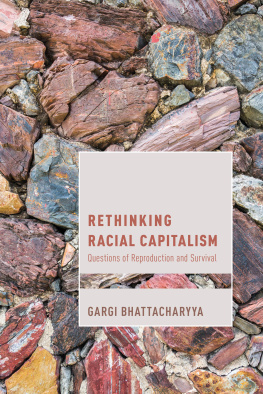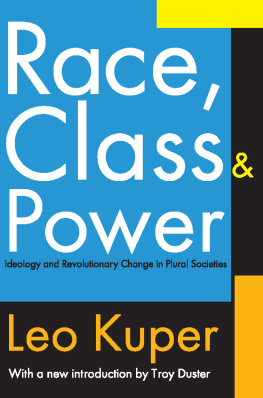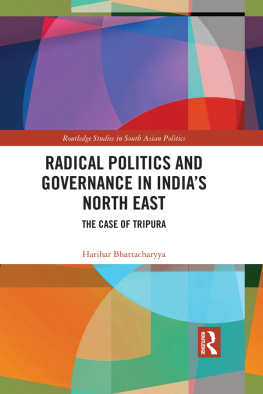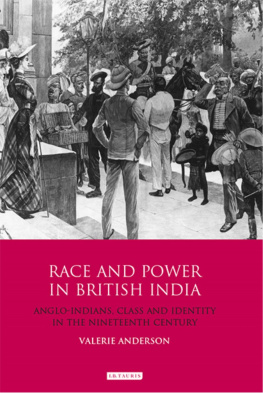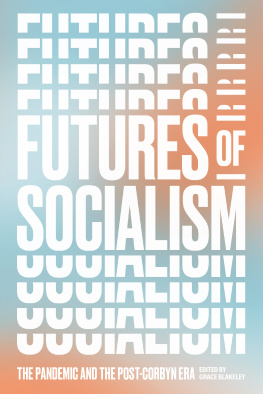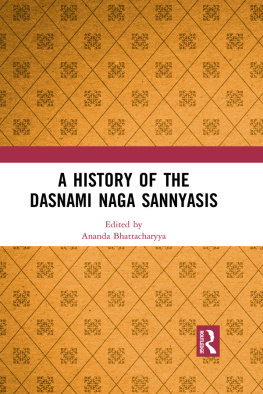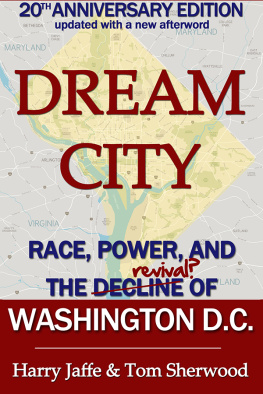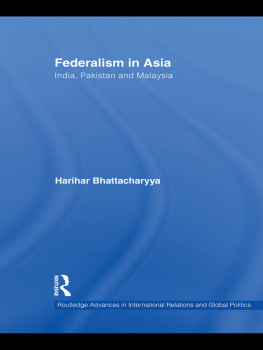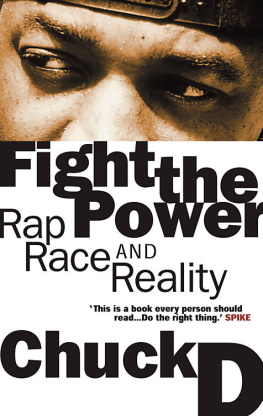
Race and Power
If globalisation is making the world more interconnected and more homogenous, why are racist divisions deepening?
Race and Power reviews cutting-edge debates around racial politics and the culture and economy of globalisation in an accessible way for undergraduate students. Far from concluding that racism is over, the authors contend that the forces of globalisation inhabit older cultures of racial division in order to safeguard the economic interests of the privileged. Arguing that the unspoken culture of whiteness informs much that passes in the name of globalisation, the book suggests that we are witnessing a reformulation of economic relations around global racisms. Alongside these shifts in economic relations racialised identities evolve to encompass mixed heritages and mixed cultures both in personal identities and in lifestyle choices. The volume ends with an examination of the role of diasporic cultural forms in contemporary global consciousness.
Gargi Bhattacharyya is Lecturer in the Department of Cultural Studies and Sociology, University of Birmingham. John Gabriel is Professor of Sociology at London Guildhall University. Stephen Small is Associate Professor in the Department of African American Studies at the University of California, Berkeley.
Race and Power
Global racism in the twenty-first century
Gargi Bhattacharyya, John Gabriel and Stephen Small
First published 2002 by Routledge
Published 2016 by Routledge
2 Park Square, Milton Park, Abingdon, Oxon OX14 4RN
Simultaneously published in the USA and Canada by Routledge
711 Third Avenue, New York, NY, 10017, USA
Routledge is an imprint of the Taylor & Francis Group, an informa business
2002 Gargi Bhattacharyya, John Gabriel and Stephen Small
Typeset in Sabon by BC Typesetting, Bristol
All rights reserved. No part of this book may be reprinted or reproduced or utilised in any form or by any electronic, mechanical, or other means, now known or hereafter invented, including photocopying and recording, or in any information storage or retrieval system, without permission in writing from the publishers.
British Library Cataloguing in Publication Data
A catalogue record for this book is available from the British Library
Library of Congress Cataloging in Publication Data
Bhattacharyya, Gargi.
Race and power: global racism in the twenty-first century/Gargi Bhattacharyya, John Gabriel and Stephen Small
p. cm.
Includes bibliographical references and index.
1. Racism. 2. RacismEconomic aspects. 3. Race relationsEconomic aspects. 4. International economic relationsSocial aspects. I. Gabriel, John. II. Small, Stephen. III. Title.
HT1521.B476 2001
305.8dc21
2001019967
ISBN 13:978-0-415-21970-9 (hbk)
ISBN 13: 978-0-415-21971 -6 (ebk)
Publishers Note
The publisher has gone to great lengths to ensure the quality of this reprint but points out that some imperfections in the original may be apparent
Contents
This volume seeks to develop our understanding of racialisation as an aspect of globalisation. We begin from the assumption that race is constructed through a variety of social forces and that the task here is to trace how people come to be differentiated in racial terms and how this relates to shifts in global patterns of power. We argue that globalisation has transformed our conceptions of race and racism (although all too many ugly and familiar traits remain), and that what was considered to be a societal or national problem is transmuted into another symptom of our globalised existence.
This is not a textbook in the sense of offering a comprehensive overview of literature in the fields of race and ethnicity. Given the current scope of the field any such project is bound to be selective. Instead we refer to those authors whose work relates to each of the broad chapter themes of this volume. As far as key terms are concerned, we offer broad definitions but share the view held by many academic writers these days that the precise meaning of socially constructed concepts like ethnicity and race as well as the different forms of racism and processes of racialisation will vary according to the context in which they are used. In the case of racialisation we adopt one of the authors distinctions between racialisation as a process of attributing racial differences to groups and racialisation as a problematic which seeks to explain those differences, barriers, etc. (Small, 1994a: 33). We use racism to refer to the ideological content of such alleged differences. The latter invariably form part of a wider set of myths and logic, bound up with notions of innate inferiority and difference what Stuart Hall has called a racist chain of meaning (1991b).
Our aim here is not to debate the pros and cons of different concepts but to contribute to the field in general through a more focused discussion of how forms of racialisation have been reconfigured through globalisation. Hence, for example, we are less interested in pitting one social division (e.g. ethnicity, race, class, gender, sexuality) against another than with exploring the ways in which these are co-constituted and reconstituted through shifts in the global order.
Within this transmutation, familiar themes are retained and the volume focuses on these issues of identity, history and social relations, cultural production and enfranchisement. Our project is to provide a context to explain the shift in emphasis from old determining ethnicities to new dynamic ethnicities. In this, we are building on the suggestion that ethnicity and identity are not fixed from birth, a set of characteristics we all somehow embody, but instead take shape through a variety of changing structures. This follows Steve Fentons point that [ethnic categories] are not simply a direct product of shared ancestry, culture and language, but rather, also of the way ancestry is viewed, culture is constructed and language is used in the formation and modification of ethnic identities (1999: 19).
We also reject the study of race and ethnicity as an invasive scrutiny of black people, and instead have sought to problematise whiteness. Hence our decision to make the latter the focus of the first chapter. Richard Dyer wrote about whiteness in contemporary film in the late 1980s, a period that coincided with a revival of interest in the work of black intellectuals like W.E.B. Dubois and Frantz Fanon, both of whom had written about whiteness much earlier. The settings in which whiteness was researched in the 1990s moved beyond popular representations to examine its meanings in everyday culture and identities (see e.g. Frankenberg, 1993). In our view the concept enables us to explore the origins of whiteness in the rational male subject of the Enlightenment period through the reworkings of racist myths as well as uncovering new forms of racialisation which have coincided with global developments, including the development and expansion of telecommunications and information technology. The latter have created the possibility of new, transnational allegiances and identities to emerge and make new forms of politics possible. It also allows us to turn the analytical spotlight off minority cultures (often couched in terms of problems) and focus on the ways in which privileges are maintained through the discourses of whiteness.




